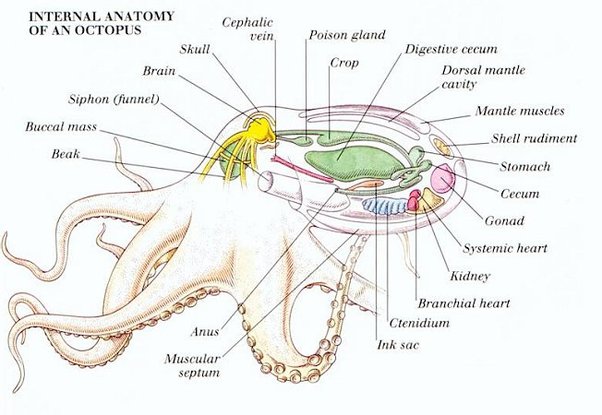How Many Brains Does an Octopus Have?
Octopuses are fascinating creatures that have captured the imagination of people for centuries. These intelligent animals are known for their ability to change and shape, as well as their impressive problem-solving skills. One of the most intriguing aspects of octopuses is their unique nervous system,color which includes not one, but multiple brains. In this article, we will explore how many brains an octopus has and what this means for their behavior and cognitive abilities.
The Central Nervous System of an Octopus
To understand how many brains an octopus has, it is important to first understand their central nervous system. Unlike humans and other vertebrates, who have a centralized brain and spinal cord, octopuses have a distributed nervous system. This means that their neurons are spread throughout their body, with clusters of neurons located in each of their eight arms.
In addition to these arm clusters, octopuses have three main parts to their central nervous system: the supraesophageal ganglion (or “brain”), the subesophageal mass, and the optic lobes. The supraesophageal ganglion is the largest of these structures and is responsible for processing sensory information and controlling the animal’s behavior.
The Multiple Brains of an Octopus
So, how many brains does an octopus have? The answer is not a simple one. While octopuses do have a centralized brain in the form of the supraesophageal ganglion, they also have smaller clusters of neurons located in each of their arms. These arm clusters are often referred to as “mini-brains” or “distributed brains” and are capable of processing information independently from the central brain.
This distributed nervous system allows octopuses to perform complex tasks with their arms, such as opening jars and solving puzzles. It also means that if one arm is injured or removed, the others can continue to function independently. In fact, some researchers believe that octopuses may be capable of conscious control over each of their arms, essentially giving them eight “brains” in total.
The Behavioral Implications of Multiple Brains
The presence of multiple brains in octopuses has significant implications for their behavior and cognitive abilities. For example, it is thought that the distributed nervous system allows octopuses to process information more quickly and efficiently than animals with centralized nervous systems. This may explain why octopuses are such adept problem-solvers and have been observed using tools in the wild.
Additionally, the distributed nervous system may allow octopuses to exhibit complex behaviors that are not possible in animals with centralized nervous systems. For example, some researchers have observed octopuses engaging in what appears to be play behavior, such as tossing objects back and forth between their arms. This type of behavior would be difficult to explain in animals with centralized nervous systems, as it would require conscious control over each limb.
The Evolutionary Origins of Multiple Brains
The presence of multiple brains in octopuses raises an interesting question: why did they evolve this way? While there is no definitive answer to this question, some researchers believe that the distributed nervous system may have evolved as a way for octopuses to adapt to their environment.
Octopuses are known for their ability to camouflage themselves and blend in with their surroundings. The distributed nervous system may allow them to process visual information more quickly and accurately, allowing them to adjust their color and texture in real-time to match their surroundings.
Additionally, the distributed nervous system may have evolved as a way for octopuses to protect themselves from predators. If one arm is attacked or injured, the others can continue to function independently, allowing the animal to escape or defend itself.
Conclusion
In conclusion, octopuses are remarkable creatures with a unique nervous system that includes multiple brains. While the exact number of “brains” an octopus has is difficult to determine, it is clear that their distributed nervous system allows them to exhibit complex behaviors and cognitive abilities that are not possible in animals with centralized nervous systems. Further research into the evolution and function of this distributed nervous system may provide insights into the remarkable adaptability and intelligence of these fascinating animals.













Post Comment